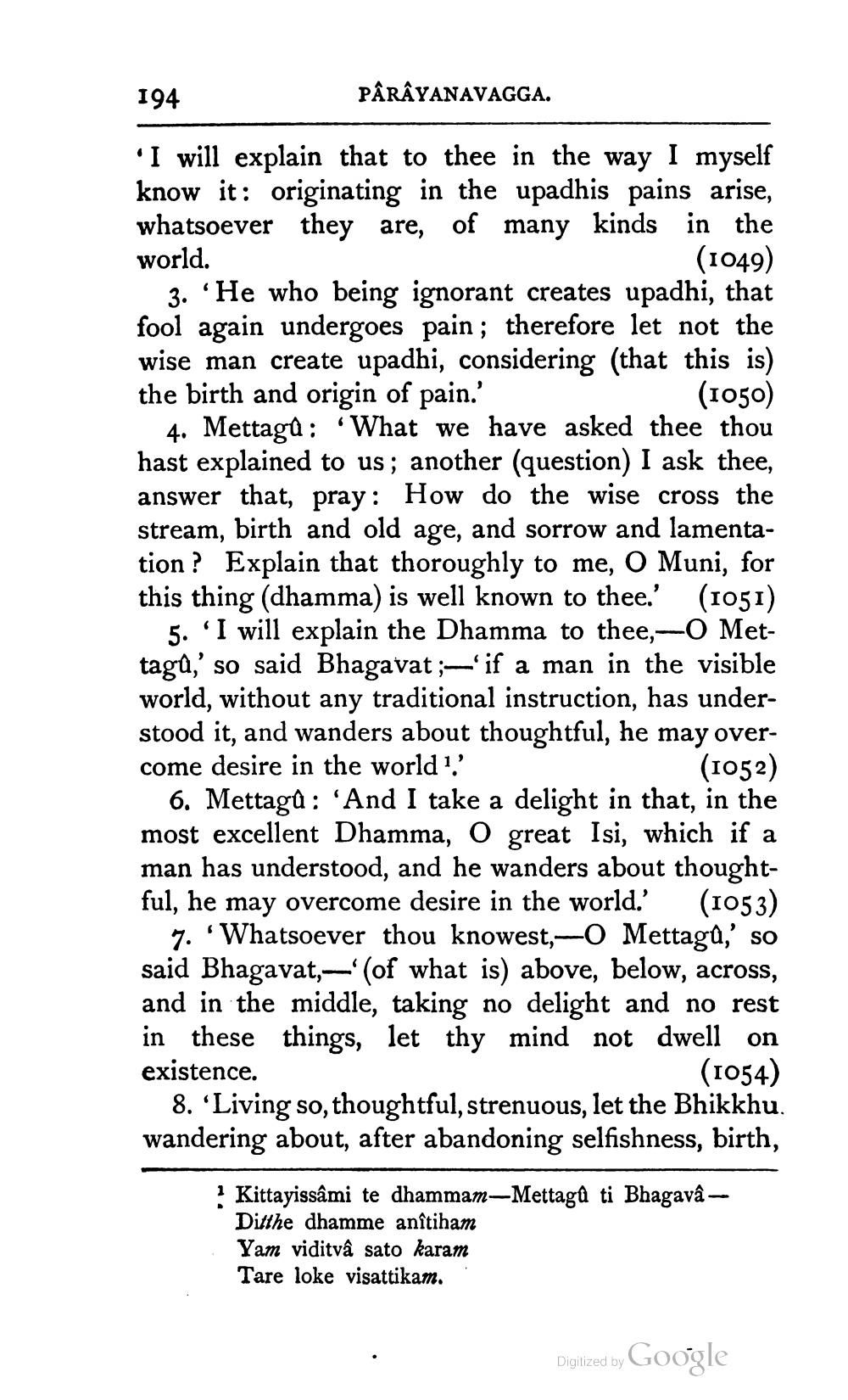________________
194
PARAYANAVAGGA.
'I will explain that to thee in the way I myself know it originating in the upadhis pains arise, whatsoever they are, of many kinds in the world. (1049) 3. 'He who being ignorant creates upadhi, that fool again undergoes pain; therefore let not the wise man create upadhi, considering (that this is) the birth and origin of pain.' (1050) 4. Mettagû: 'What we have asked thee thou hast explained to us; another (question) I ask thee, answer that, pray: How do the wise cross the stream, birth and old age, and sorrow and lamentation? Explain that thoroughly to me, O Muni, for this thing (dhamma) is well known to thee.' (1051)
5. 'I will explain the Dhamma to thee, O Mettagú,' so said Bhagavat-if a man in the visible world, without any traditional instruction, has understood it, and wanders about thoughtful, he may overcome desire in the world'.'
(1052) 6. Mettagû: 'And I take a delight in that, in the most excellent Dhamma, O great Isi, which if a man has understood, and he wanders about thoughtful, he may overcome desire in the world.' (1053)
7. 'Whatsoever thou knowest,-O Mettagû,' so said Bhagavat,—' (of what is) above, below, across, and in the middle, taking no delight and no rest in these things, let thy mind not dwell on existence.
(1054) 8. 'Living so, thoughtful, strenuous, let the Bhikkhu. wandering about, after abandoning selfishness, birth,
Kittayissâmi te dhammam-Mettagû ti Bhagavâ—
Ditthe dhamme anîtiham
Yam viditvâ sato karam
Tare loke visattikam.
Digitized by Google




